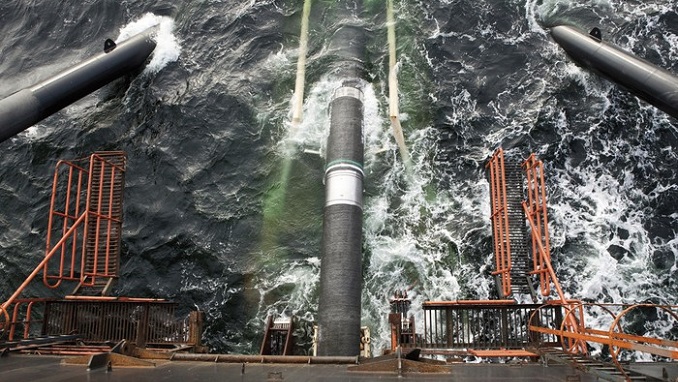Moscow is hoping that the German government will remain committed to implementation of Nord Stream 2, a major gas pipeline project, Russian Ambassador to Germany Sergei Nechayev said in an interview with Germany’s Berliner Zeitung late on Tuesday, TASS reported.
“It [Nord Stream 2] adheres to all European regulations and obtained all the necessary permits,” the diplomat recalled. He then underlined that Germany will not be able to meet its energy demands by only employing renewables. “Of course, Germany and the EU should themselves determine their energy security. We mustn’t accept the fact that US senators send letters containing threats to European companies and bodies,” Nechayev noted. “The German government has so far stuck to implementation of the project, we are hoping that it will stay that way,” the envoy said.
Nechayev emphasized that Russia’s critics in Germany and the US often say that not everyone in Eastern Europe would want to see Moscow and Berlin getting closer to each other. “Economic interests play an important role here, as Poland itself wants to become Europe’s energy center and, therefore, opposes Nord Stream 2,” the diplomat added. “Of course, we regret this anti-Russian policy, which is now followed by the government in Warsaw.”
“As for Nord Stream 2, it is an international commercial project,” Nechayev said, noting that “blackmail attempts should not be tolerated in international relations.”
The Nord Stream 2 project contemplates the construction of two pipeline strings with a total capacity of 55 bln cubic meters per year from the coast of Russia through the Baltic Sea to Germany. To date, 93% of Nord Stream 2 has been finished. The construction was suspended in late 2019 when Swiss pipe-laying company Allseas stopped work due to US sanctions.
On June 4, US Republicans tabled a bill to expand sanctions against Nord Stream 2 to the US Senate. The press team of one of the bill’s authors noted that the document specifies and expands sanctions in the framework of the law on ensuring Europe’s energy security and is aimed at preventing the completion of the gas pipeline. Berlin sharply criticized the plans to expand the sanction lists.
CAATSA, the Countering America’s Adversaries Through Sanctions Act, was adopted in 2017. It envisions restrictions that can be adopted by US government against countries that reach major deals with Russia to purchase and supply arms and military hardware.












